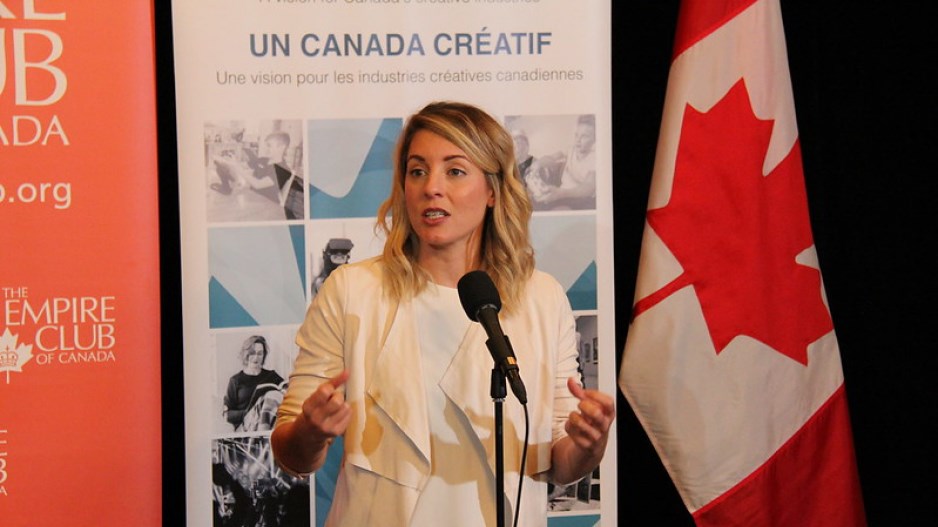Mélanie Joly, Canada's Minister of Economic Development and Official Languages, said Wednesday three sectors of the economy are on the federal government’s radar at the moment to receive further pandemic-related subsidies: oil and gas, tourism and the airline industry.
“We are looking at specific aid for these sectors,” Joly told the Surrey Board of Trade by video conference.
The three sectors she identified stand out as carbon intensive, but Joly did not address how the Canadian economy may pivot to address either climate change reduction or even mitigation.
Last week the think-tank Pembina Institute called for governments to prioritize “investments that support the development of industries and businesses producing low- and zero-carbon goods and services to strengthen the foundation of B.C.’s clean economy and secure our domestic supply chain.”
Joly was asked to address economic resilience during the pandemic response and the post-pandemic recovery plan.
Joly said to expect further federal government support for fixed business costs beyond wages during the pandemic response.
Following the wage subsidy program, “we knew the next steps would be other fixed costs” such as property and equipment leases, said Joly.
An announcement is forthcoming, she said.
Surrey Board of Trade CEO Anita Huberman asked Joly about economic development following the pandemic; however, Joly had little to say, stating the focus right now is the emergency financial recovery efforts.
“I think there is a pre-pandemic world and a post-pandemic world. We are looking at how we deal with the real impact of the pandemic.”
Joly said during the recovery it is important to maintain Canadian-based businesses.
“We need to keep them Canadian and we need to make sure we can have the best companies in Canada,” she said.
She also said she expects banks and other financial institutions to be offering low interest loans to businesses in order to maintain liquidity.
“If that’s not the case we have a real problem” and “I want to hear about it,” she said.
Joly said it will be important to maintain consumer confidence as well.
“We need to cross the bridge to the other side of shore,” said Joly.
Joly noted the 75% wage subsidy up to $58,700 for those companies showing income loss of 30% or greater. For the unemployed and those earning up to $1,000 per month, the emergency response benefit is $2,000 per month.
“We know the wage subsidy can be better. We’re getting there,” said Joly.




